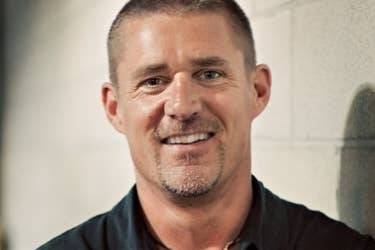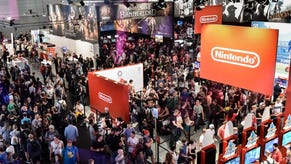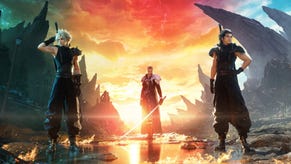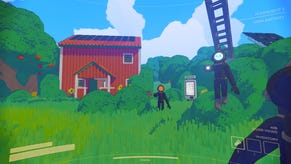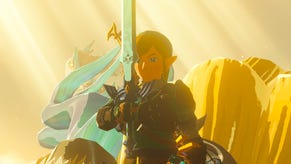Schofield: Games industry still "isn't there yet"
DICE 2013 Video: Sledgehammer co-founder talks about the process behind finding innovation for games and elevating the medium
Sledgehammer Games general manager and co-founder Glen Schofield took the stage at DICE following JJ Abrams and Gabe Newell to discuss a topic of critical importance to the games business: innovation. His talk began by lamenting the fact that the industry still doesn't have the mainstream respect it deserves. Schofield noted, "We are the next medium to tell a fantastic story" and he believes that "we'll get there on the strength of our ideas."
Schofield said that while he leads a studio, he very much thinks of himself as a creative. He's been directing games for 17 years now, and he only has an MBA "so suits can't pull wool over my eyes." For Schofield, innovation is all about generating ideas. It's not just about having talent, it's "how can I come up with ideas all the time?"
"We've got to come up with 'eureka moments' all the time in the games industry," he said. Schofield commented that the industry owes it to its customers to make the best games possible with the best ideas in there. So where do these ideas come from? You have to keep an open mind, he said, as an idea can come from anywhere, and then you have to put your ego down. The best ideas have to win - who cares who comes up with it?
The next step is to assess priorities, determine what part of the "puzzle" to fill in next, and put everything into a virtual list. Then comes perhaps the most critical component: research. As a creative you should always be in research mode - it's a competitive advantage, Schofield noted. He said that competition pushes you to go further and further. He went on to talk about the massive amount of research done for Modern Warfare 3; for example, he researched sandstorms and the impact they have, and then decided to include that in the game. For every single element of a game, no matter how big or small, research needs to be done.
It's not enough to be satisfied with just scratching surface - it's important to dig deeper into research, which can generate future ideas. For example, Dead Space started out from watching numerous sci-fi and horror movies. Schofield watched around 400 movies during the making of the game. He read tons of books as well; as an example, Isaac Asimov is how they arrived at naming the character Isaac Clarke.
One of the best ways to research for games, Schofield said is to actually get direct experience from going somewhere, like flying with test pilots in a zero-g trip, or going on tank rides, etc. Photography also significantly increases retention, so take pictures of everything; your camera is the best research tool in your pocket, he said. It's also important to gain the help of consultants at times, who can further brainstorm ideas with you or come up with better ones.
Ultimately, the goal is to look at everything. You don't want to ripoff others but you mine for stuff and look for things people have done really well. "Inspiration doesn't always take a direct path," Schofield said, but asking "what if?" all the time is a big help and will drive ideas.
Glen Schofield's full session can be viewed below
